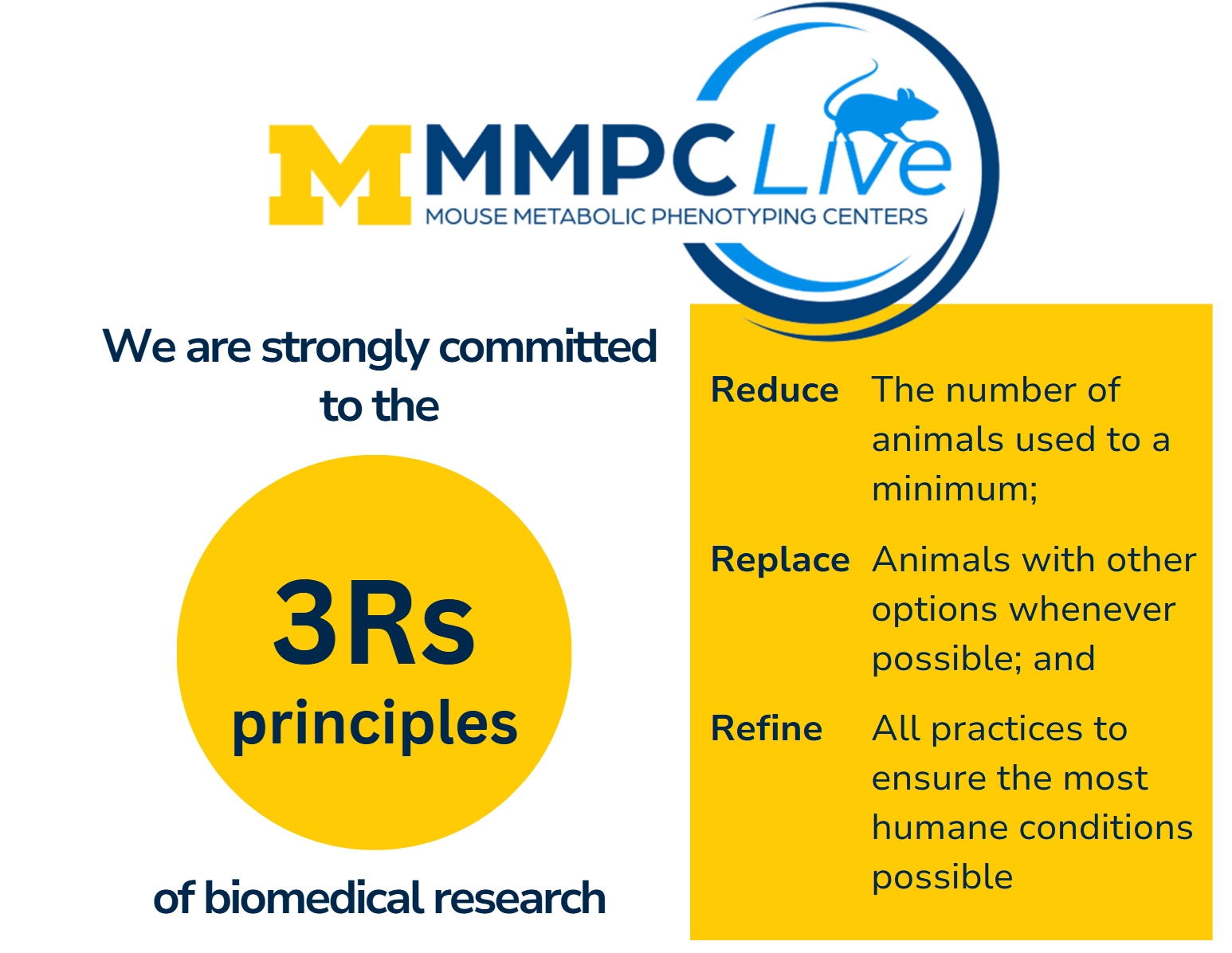Administrative Core


Metabolic, Physiological and Behavioral Phenotyping Core


Animal Care and Germ-Free Core


National Mouse Metabolic Phenotyping Centers
Mission Statement
"Our mission is to advance medical and biological research by providing the scientific community with standardized, high quality metabolic and physiologic phenotyping services for mouse models of diabetes, diabetic complications, obesity and related disorders on live mice.
The four Centers are housed at outstanding academic institutions, staffed by experts in state-of-the-art technology. Researchers can ship mice to one of the Centers and obtain on a fee-for-service basis a range of complex exams used to characterize mouse metabolism, blood composition including hormones, energy balance and physical activity, eating and exercise, insulin resistance, organ function, metabolic fluxes and morphology, physiology, histology and measures of diabetic complications in heart, kidney, vasculature, eye, etc. Many tests are done in living animals and are designed to elucidate subtle to complex traits that would define models of metabolic disease.
The development of transgenic technology and gene targeting protocols has resulted in numerous mouse lines with specific phenotypes and well-defined DNA structural changes. Candidate genes for diabetes, obesity and other disorders of metabolism have been identified and transgenic mice are being generated using this technology. By broadening the availability of sophisticated metabolic phenotyping, we hope to help investigators identify and study new mouse models that will lead to an improved understanding of these complex diseases."
Goals
- Broaden the scope of the metabolic phenotyping tests for mice available to investigators.
- Standardize key methodologies.
- Expedite the completion of research
- Compile a database of information relevant to mouse models of diabetes, obesity and diabetic complications.


